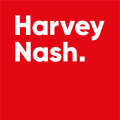How to Hire When You’re About to Scale
How to Hire When You’re About to Scale
The sixth and final article in our series on scale, Harvey Nash Ireland’s Director David Burke shares his experience helping businesses hire when they’re about to scale.
“Today’s talent isn’t necessarily tomorrow’s.”
Those first critical hires, David explains, in the early stages of a company’s life are painstaking decisions but soon evolve into other challenges.
“There is, understandably, a nervousness around getting it wrong. Cash flow is tight, culture is king and if I’m going to sit in a small room all day with these people I better be sure I like them!”
But as a business scales, so too must its processes. “It’s important to understand hiring profiles change. Roles and responsibilities begin to break down into more formal silos and specialisms.
“So the need for yesterday’s general, flexible all-rounder evolves into a demand for deeper specialisms and expertise to support your growth and development.”

Also contending for your attention is the evolution of your culture.
“Early-stage lifecycle decisions are often made collectively as a core group,” says David. “As you scale and grow, things are decided by the people best placed to own the actions. People can start to feel left out of decisions they feel they should be involved in.”
David’s advice? “Manage people’s expectations while evolving a culture that remains true to the values you started with.”
Caroline Hines, Director of Product at OneView Healthcare tackled this issue in the third article in this series. Read the article here.
Talent acquisition practicalities
From a talent acquisition perspective, when you scale it’s important to start building your capabilities here too.
“In the early stages, you may have relied heavily on your personal network and referrals, taking the option of a safe bet on someone known to you or to someone you trust,” says David.
“As you look to deliver scale in terms of hiring you’ll need to branch out and build your capabilities in this area as well.”
“This is true for companies moving from start-up to their first or second scale phase, and for companies moving from 50-100 or 100/500+ employees. Times change and your talent acquisition, retention and culture strategies need to change too.”
So when should you hire perm, contractors or outsource job families? The decision is complex and has many factors. David offers his advice on each.
The Start-up Hiring Strategy
“Generally while building out your start-up the focus is on perm. You want people bought into the vision, happy to roll up their sleeves to make that vision a reality who are committed to the project mid- to long-term. You’re trying to build a family, a culture and do great things together.”
“As your business grows,” says David, “you will most likely try to retain this strategy, keep your family growing and manage your payroll costs in line with funding, cash flow and revenues.”

The Case for Contracting
“Contracting is usually, and incorrectly, seen as an expensive and unnecessary option, only justifiable at large corporate entities” reflects David. “But augmenting your business with contract staff has an important role to play at all stages of growth.”
“Contractors can deliver a burst of new talent to upskill the core team, augment your staffing levels temporarily to manage areas like increased workload, cover a temporary talent gap, meeting deadlines, or handle a block of non-core work like testing, for example.”
The Benefits of Blended Models
“A lot of businesses will use fully outsourced/offshore partners, particularly in the early stages as they look to cost-effectively build viable products to take to market.
“As your business grows you may look to transition the development activities back to your inhouse teams or leave the heavy lifting sitting with your outsourced partner.”
“Consider a blended offshore/onshore model,” recommends David. “Our ODC (offshore dedicated centre) in Vietnam means clients get an onsite presence and account management but the cost benefits of offshore technical resources.”

Recruitment Solution Services
“One of our fastest growing business lines is our Recruitment Solutions service,” says David. “This couples expert consultancy on the best talent acquisition strategies and recruitment processes with a global talent delivery engine, allowing businesses to scale quickly from one phase to another.
Which do you pick?
“Key considerations are maturity and capability,” says David.
“We help companies design and implement a strategy best suited to them. For companies actively scaling it’s usually is a mix of direct hiring and delivery through our teams, but all managed under our overall service umbrella.
“Some companies opt to retain our services and their outsourced talent management function on an ongoing basis, but often we help them through the initial scale phases and gradually replace our team and services with inhouse talent and processes.
“This means the company has the ability to ramp up the campaigns quickly and deliver bulk, niche tech talent and then transition smoothly to their final position when they have processes and internal teams in place.
“We can park our involvement at that point but the customers can easily reactivate the outsourced service if they encounter more bulk hiring phases or need assistance for niche hiring at any point in the future.
The Signs of a Successful Hiring Campaign
To make the most of your hiring drive, maximise your investment, minimise turnover and build a glowing reputation in the marketplace, David recommends the following.

Have an authentic narrative and culture
“It must reflect who you really are as a business so that when people join your business they feel you have delivered what you promised.”
Commit to the process and allow adequate time
Bulk hiring requires a lot of time from key stakeholders, particularly in terms of interviewing. There are lots of tools for technical and people assessments that we bolt on to the process to reduce this time commitment, but you need to accurately plan for the hours involved and make sure everyone is committed to making it happen.
Transparency and communication are mandatory
Ireland is a small tech community and people deserve and rightly expect to have a positive hiring experience with your business. Make sure people receive constructive and timely feedback even if unsuccessful as you may want to revisit these people at some time in the future. Bad experiences can have a serious impact on your employer brand in Ireland’s small, connected tech community.
Be clear on what you are looking for before you go to market
Often, we have customers looking to hire new teams but they haven’t thought of the structure the team will need to have, the career plans that will need to be in place for all of those people and how they will all fit into a high performing unit. Poor planning can lead to teams of highly capable individuals without a shared purpose or clear view of where they can progress and all they can achieve in your organisation.




